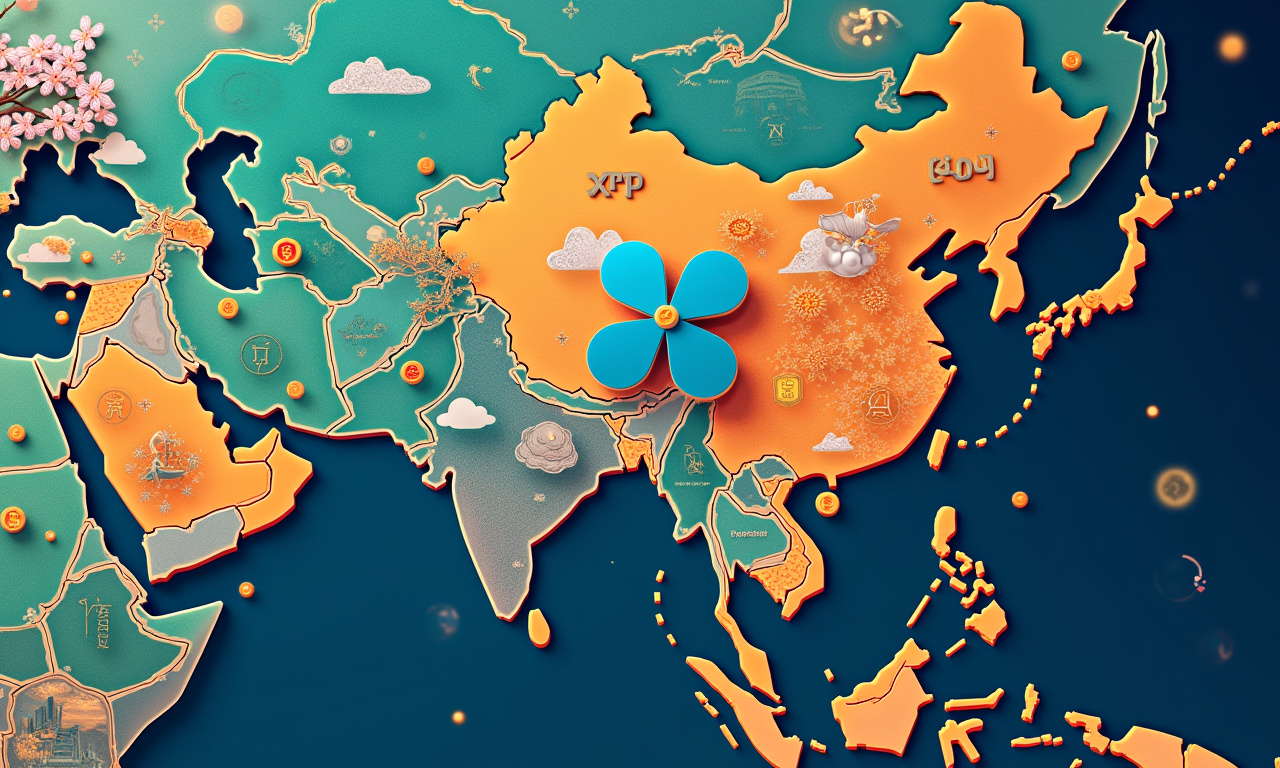
Dark Stablecoins: Asia's Founders Find Freedom From Regulation?

Josefa dela Cruz
Are we on the brink of seeing a quiet revolution take place in the center of the continent, underpinned by an innovation known as “dark stablecoins?” No, I’m not talking about a dystopian cyberpunk future. I’m describing one out of many palpable reactions to the growing regulatory squeeze on crypto. With familial ties to the Philippines, I am especially concerned about the impact on the burgeoning startup ecosystem there. This worry is shared across the whole of the continent as well.
Innovation Or Evasion: A Fine Line?
If we’re being straightforward, anything with the word “dark” in it can’t be good. It makes it sound like something out of a crime-riddled state — complete with backroom deals and money laundering. Before we jump to conclusions, consider this: isn't innovation often born from necessity, from navigating limitations? The traditional financial system has long been a maze of red tape and gatekeepers, especially for startups in developing economies. Asian founders often experience deep frustration and elevated costs when accessing capital. Further, cross-border payments and storing value can be intimidating undertakings for them.
Stablecoins offered a glimmer of hope. One of the most exciting ways to jump over a few of those usual barriers. Now that regulators around the world are looking at stablecoins with skepticism, that faith dangerously seems imperiled. As CryptoQuant CEO Ki Young Ju seizes upon the new, still-embryonic whispers of tougher KYC and AML protocols. Beyond that, we could be looking at programmable transaction caps and automated tax collection via smart contracts.
Is this the price of stability? Or are we mistakenly driving innovation underground?
Regulation's Unintended Consequences
Now the intent behind such regulation is, of course, admirable. Nobody on this earth wants to see stablecoins used in drug trafficking or sanction evasion schemes. Here's the rub: overly stringent rules can have unintended consequences. Or they can smother innovation and chase legitimate businesses out of town. Ultimately, though, they do the opposite and foster the very behaviors that they set out to curb.
An early-stage startup in the Philippines faces an uphill battle to get established. Now, it’s staring down the barrel of a mountain of compliance paperwork just to use stablecoins for their day-to-day operations. A much larger and more formally established competitor can easily pay to dance through the regulatory hurdles. Who benefits?
This isn't just about theoretical arguments. I’ve talked with founders based in Manila who are already starting to feel the squeeze. And they’re concerned about the greater costs and complications associated with complying with new, stricter regulations. They worry that it will put them at a disadvantage, prevent them from competing with bigger, better-resourced incumbents.
"Dark stablecoins" are, by definition, less transparent. They prioritize censorship resistance over regulatory compliance. They provide a means to transact and store value that exists beyond the bounds of government scrutiny. Now, I'm not advocating for their use. I’m not dismissing them, but simply highlighting their existence. As regulations get stricter, the need for these and similar tools will only grow.
Asian Ingenuity: A New Financial Frontier
Consider this unexpected connection: just as the internet was initially envisioned as a decentralized, open platform, only to be increasingly controlled by centralized entities, so too are stablecoins facing a similar trajectory. The dream of a genuinely democratized, decentralized financial system is being confronted by the reality of regulatory pressure.
For Asian founders, especially those operating from countries with weaker financial underpinnings, “dark stablecoins” could be a saving grace. It’s become one of the only paths left to continue innovating and building, despite the growing mountain of regulatory challenges. This isn’t all bad, but this is the reality.
The question we need to ask ourselves is this: are we creating a system where only the wealthy and well-connected can participate in the future of finance? Or are we creating a dynamic playing field that supports innovation and empowers entrepreneurs, no matter where they are or what tools they have?
I'm not against regulation. I continue to believe that a well-regulated crypto industry can and should be a force for good. But regulation needs to be balanced. It must be in adequate measure to be commensurate with the risks at stake. It has to be sensitive to the unique capacity and challenges of developing markets like the Philippines.
It’s time to have a grown up discussion about the possible unintended consequences of going too far with regulations. We must figure out how to protect consumers while encouraging innovation. Otherwise, all we’ll accomplish is driving activity underground, where it will be even more difficult to regulate.
A Call For Balanced Regulation
So let’s not suppress the entrepreneurial spirit that’s behind so much of the current growth and innovation on display in Asia. Rather, let’s come together to build a regulatory framework that is effective and empowering. The future of finance depends on it.
As always, the StartupNews.fyi disclaimer exists for a reason. Take our advice with a grain of salt and listen to all arguments before jumping to conclusions. Of course that’s just my opinion, and I suggest you make up your own.
Let's not stifle the entrepreneurial spirit that is driving so much growth and innovation in Asia. Let's instead work together to create a regulatory framework that is both effective and empowering. The future of finance depends on it.
Remember, the StartupNews.fyi disclaimer is there for a reason. Always do your own research and consider all sides of the story. This is just my opinion, and I encourage you to form your own.


